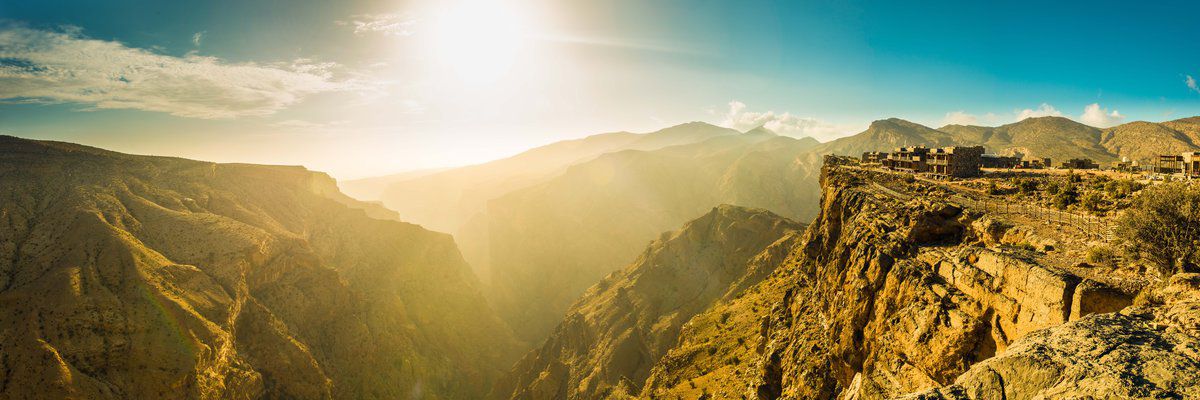Article content
19 May 2016 by Alison Nicolle
While Dubai builds high and Qatar flaunts its wealth, Oman – in its silent deserts, low-rise towns and fishing village coastlines – keeps the region’s rich, Arabian heritage alive. The sultanate has worked hard to preserve the country’s savage canyon valleys and palm-tree fringed coastlines. And, alongside bustling markets and historic mosques decked in hand-loomed carpets, one of Oman’s oldest traditions still lives on.
Each year, from the end of March until the middle of May, the country’s Green Mountain flushes pink. Thanks to its relatively temperate climate, this mountain plateau – approximately 100 miles inland from northeastern Muscat – has been the site of gardens filled with damask roses for over a thousand years. And, their much sought after perfume is still cultivated in traditional methods, thought to have been introduced by the Persians. Petals are picked in the morning, when the Arabian sun is at its least fierce, before being packed into earthenware to be boiled in mud ovens. The resulting condensation is then carefully filtered until a clear liquid – the famed Omani rose water – remains.

An Omani hat, known as a kuma, filled from the rose picking season
Given that each two kilograms of harvest yields just three quarters of a litre, it’s unsurprising that demand outstrips supply. Other than delighting olfactory senses, it’s used in traditional medicine and in the kitchen to flavour meals and beverages. The ingredient is especially popular during Ramadan when it’s used in fast breaking celebratory meals. To get your hands – or nostrils – on it, it’s best to head to the source.
Alila Jabal Akhdar – to give the Green Mountain its proper name – hides its orchards and gardens among twists, folds and valleys, known as wadis in Arabic. At first glance, the region’s epithet seems something of a misnomer. However, guided tours through mountain villages and terraced farms reveal rows upon rows of pink bushes, themselves framed by jutting peaks. As a cottage industry of sorts, you’ll also find the village homes where the rose water is distilled. If you throw your net a bit wider, there are also hikes past kilometre-deep canyons and rock dwellings carved out of the very mountainside.

Keep your eyes peeled for rose water vials when visiting one of the vibrant markets
While staying among the mountain’s 2,000m high crags rewards travellers with luxury spas and spectacular views, you’ll have to head down into its foothills to pick up some rose water for yourself. Set in a palm-covered plain to the Green Mountain’s south, historic Nizwa is home to lively market souks where vials are busily traded. Expect to pay just over £10 for 375 ml. Friendly haggling is encouraged and, if you’re unsure on a price, consult your hotel’s concierge in advance. While you’re in town, don’t forget to call into Nizwa’s stunning 17th century fort or perhaps learn how to cook with the rose elixir at a cookery class.

Dive deep into Nizwa and visit the fort, stop by a souk and soak up the atmosphere of this bustling city
Want to savour Oman’s luxurious rose water for yourself? Talk to us to find out how to build a holiday that combines Alila Jabal Akhdar with Oman’s white sand beaches, grand mosques and sultans’ palaces. Or read more about the process involved in creating a tailor-made holiday.



